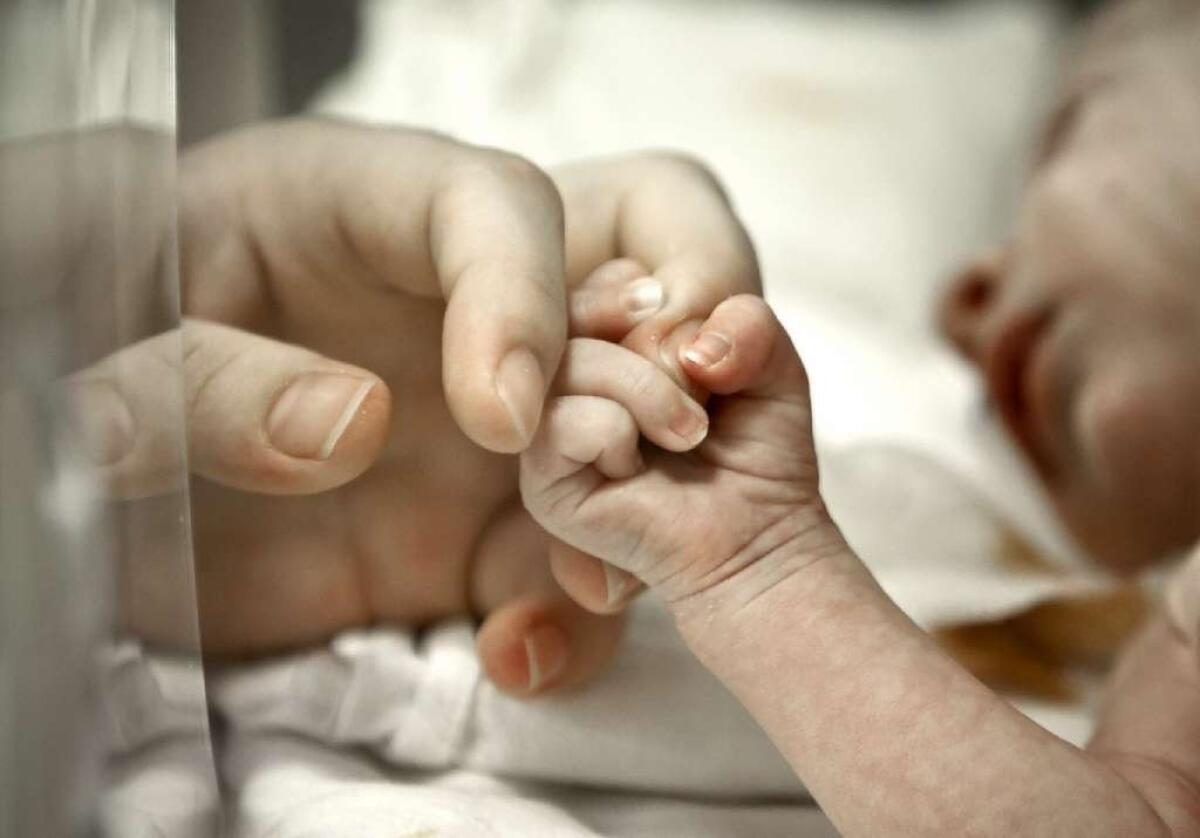California hospitals report fewer early deliveries, data show

- Share via
California hospitals, under pressure to improve patient safety and cut unnecessary costs, reported a lower rate of early-elective deliveries last year, a new report shows.
Hospitals in the state reported that 8.8% of deliveries in 2012 were early by choice, including elective inductions or caesarean sections between 37 and 39 weeks without a medical reason, according to the Leapfrog Group, an employer-backed nonprofit group focused on healthcare quality.
That was down from 11.3% among California hospitals reporting data in 2011, and it was less than the 2012 national average of 11.2%, Leapfrog said.
Leapfrog data: Check your local hospital on early-elective deliveries
“The national average dropped from 14% to 11.2%, evidence to the commitment many hospitals are making to put babies and mothers first,” said Leah Binder, Leapfrog’s president and chief executive. “Still, much more work is needed.”
Government officials, employers and health insurers have been investing considerable time and resources to reduce these early deliveries because they say they can result in unnecessary admissions to neonatal intensive-care units, longer lengths of stay and higher costs to patients and employers.
Those efforts have included educating doctors and medical staff about the potential risks involved and requiring a medical reason before proceeding with an early delivery. Many mothers and doctors opt for an early delivery out of convenience.
Quiz: How much do you know about healthcare?
Other state averages included 26.2% in Pennsylvania and 18.3% in Texas. Hospitals in New York and Massachusetts fared better, with a 5.9% average in both states last year, according to Leapfrog.
Not all hospitals voluntarily report their data to Leapfrog. The group said 46% of the 773 reporting hospitals nationwide met Leapfrog’s target of 5% or less for early-elective deliveries. That was up from 39% of reporting hospitals in 2011.
Anthem Blue Cross, California’s largest for-profit health insurer, has been working with hospitals and the National Health Foundation in an effort to avoid these unnecessary early deliveries.
Last year, those organizations said the number of early-elective deliveries among participating California hospitals declined to 3.6% in 2011, from 10.4% in 2010.
In the Leapfrog data, Los Robles Hospital and Medical Center in Thousand Oaks cut its rate to 4% in 2012, from 9.5% a year earlier.
Most Kaiser Permanente hospitals fell below the 5% threshold, including Kaiser’s Los Angeles Medical Center, at less than 1%.
ALSO:
Tax help comes with health insurance advice
UCLA Medical Center gets failing grade on patient safety
More to Read
Inside the business of entertainment
The Wide Shot brings you news, analysis and insights on everything from streaming wars to production — and what it all means for the future.
You may occasionally receive promotional content from the Los Angeles Times.











